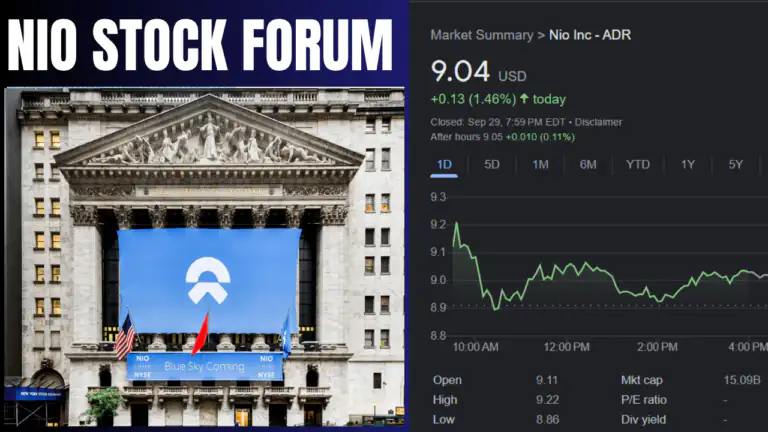Business Excellence Jobs: Key Requirements And Essential Leadership Skills
In the competitive world of modern business, achieving operational excellence is critical for organizations that aim to thrive and grow sustainably. The role of a Business Excellence Leader is central to guiding companies toward consistent improvement, operational efficiency, and maintaining a high standard of performance. But what exactly does it take to excel in a Business Excellence role? This article will explore the key job requirements, job descriptions, and the leadership skills needed to become a successful Business Excellence professional.
Understanding the Role: What Is a Business Excellence Leader?
A Business Excellence Leader is responsible for developing, managing, and optimizing the internal processes of an organization. This role involves working closely with different departments to identify opportunities for improvement, implementing best practices, and fostering a culture of continuous improvement. The goal is to drive operational efficiency, reduce waste, and improve the overall performance and productivity of the business.
Typically, a Business Excellence Leader’s focus includes:
- Process optimization
- Performance management
- Strategic planning
- Lean and Six Sigma methodologies
- Risk management and compliance
- Innovation in business operations
Job Description: Key Responsibilities of a Business Excellence Leader
A Business Excellence job comes with a variety of responsibilities that often span across multiple areas of the organization. Below are the primary duties that are part of the job:
- Developing and Implementing Process Improvement Strategies
- Designing and executing strategies to optimize business processes and improve operational performance.
- Applying methodologies like Lean, Six Sigma, and Total Quality Management (TQM) to identify and eliminate inefficiencies.
- Driving Continuous Improvement Initiatives
- Leading and promoting continuous improvement programs that drive sustainable results.
- Fostering a culture where employees are encouraged to identify process improvements and contribute to organizational growth.
- Performance Measurement and Benchmarking
- Establishing key performance indicators (KPIs) to measure operational effectiveness and ensuring they are met or exceeded.
- Benchmarking organizational performance against industry standards to ensure competitiveness.
- Collaborating Across Departments
- Working with cross-functional teams—such as operations, finance, HR, and IT—to streamline workflows and ensure alignment with the overall business strategy.
- Building relationships with stakeholders at various levels to ensure support for improvement initiatives.
- Risk and Compliance Management
- Identifying risks in current business processes and implementing controls to mitigate these risks.
- Ensuring that the organization adheres to all legal and regulatory requirements through robust compliance processes.
- Leading Business Transformation Projects
- Managing change by overseeing business transformation projects, from planning and execution to evaluation and feedback.
- Implementing digital solutions and innovation to stay ahead of the competition.
- Employee Training and Development
- Training and coaching employees in process improvement tools and techniques.
- Empowering employees to take ownership of business processes and participate actively in continuous improvement initiatives.
Key Job Requirements: What Do Employers Look For?
The qualifications and experience required for a Business Excellence role can vary depending on the industry and organization. However, the most common job requirements include:
- Education
- Bachelor’s degree in Business Administration, Operations Management, Engineering, or a related field. Some roles may require a Master’s degree or an MBA.
- Certifications in process improvement methodologies such as Lean, Six Sigma (Green or Black Belt), ISO standards, or Project Management (PMP).
- Experience
- 5-10 years of experience in process improvement, operational excellence, or a related field.
- Proven track record of successfully implementing improvement initiatives and managing large-scale business transformation projects.
- Technical Knowledge
- Strong knowledge of Lean Six Sigma methodologies, Kaizen, TQM, and other continuous improvement frameworks.
- Familiarity with process mapping tools and software such as Microsoft Visio, Minitab, or ERP systems.
- Analytical Skills
- Expertise in data analysis and performance metrics, with the ability to interpret complex data and make informed decisions.
- Strong understanding of statistical analysis and root cause analysis tools.
- Leadership and Change Management
- Proven ability to lead teams and manage change across multiple departments.
- Expertise in building a culture of excellence and getting buy-in from employees and stakeholders.
You may need To Check This article How To Enhance your LinkedIn Profile In 10 Minutes
Essential Skills: What It Takes to Be a Great Business Excellence Leader
To be an effective Business Excellence Leader, certain skills go beyond technical expertise. A combination of leadership, strategic thinking, and people management is critical for success in this role. Below are the key skills every Business Excellence Leader should possess:
- Strategic Vision
- Forward-thinking: The ability to see the big picture and align operational improvement strategies with long-term business goals.
- Problem-solving: Proactively identifying challenges and developing innovative solutions to overcome them.
- Leadership and People Skills
- Influence and Persuasion: Gaining buy-in from team members and senior leadership for process improvement initiatives.
- Team Development: Creating an environment that fosters teamwork, continuous learning, and empowerment.
- Change Management: Managing resistance to change and ensuring smooth transitions during business transformations.
- Communication Skills
- Effective Communication: The ability to clearly articulate process improvements and strategies to employees at all levels.
- Cross-Functional Collaboration: Working with multiple departments requires excellent interpersonal and collaboration skills to achieve shared goals.
- Data-Driven Decision-Making
- Analytical Thinking: A focus on data and metrics to drive decisions and measure the success of initiatives.
- Root Cause Analysis: The ability to dig deep into problems to understand their underlying causes and implement corrective actions.
- Resilience and Adaptability
- The business landscape is constantly evolving, and a Business Excellence Leader must be adaptable, ready to embrace new trends, technologies, and challenges.
- Innovation and Continuous Learning
- Curiosity: Always looking for new ways to optimize processes, improve efficiency, and create value.
- Staying up to date with the latest trends in business excellence and operational management is key to staying ahead.
Conclusion: A Path to Business Excellence Leadership
Business Excellence Leaders play a critical role in driving continuous improvement, operational efficiency, and sustainable growth. To succeed in this role, individuals must possess a unique blend of technical expertise, leadership skills, and strategic thinking. By understanding the job requirements and focusing on developing the right set of skills, aspiring professionals can excel in this rewarding career path.
If you’re looking to advance your career in business excellence, focus on building these core competencies, earning certifications, and gaining real-world experience in process improvement. The path to becoming a great leader in business excellence is both challenging and rewarding, offering opportunities to make a significant impact on any organization.
Here Check Some Free Jobs For Business Excellence Professionals






